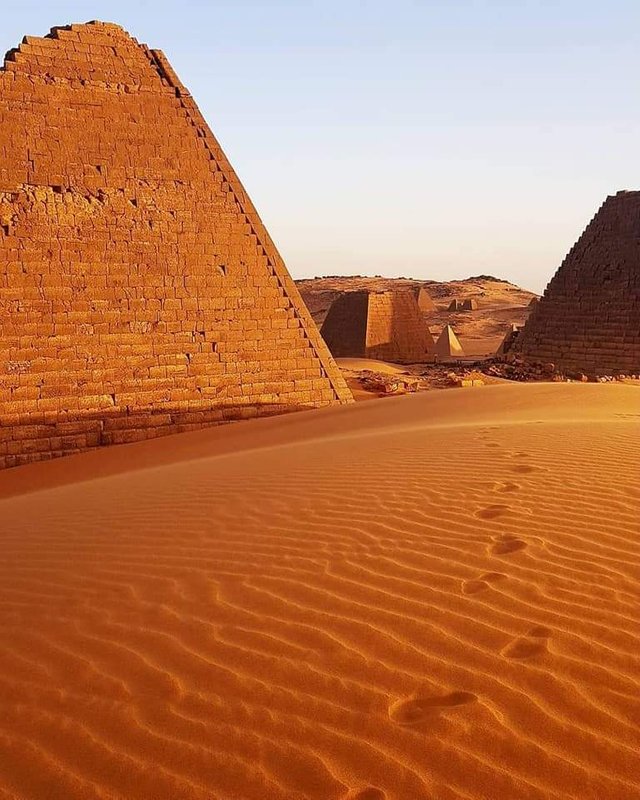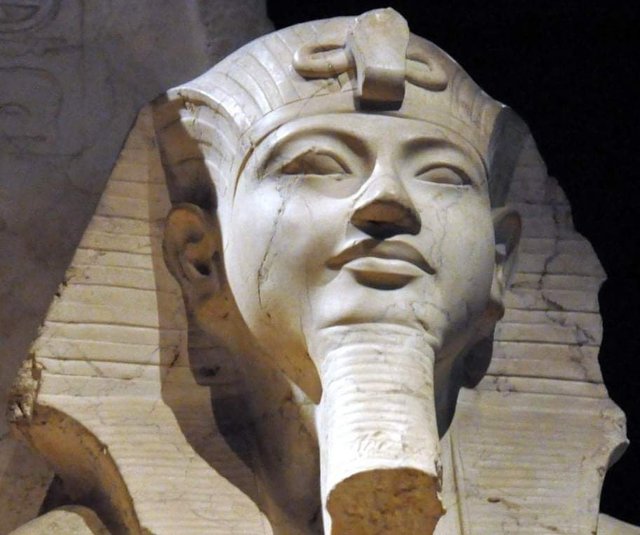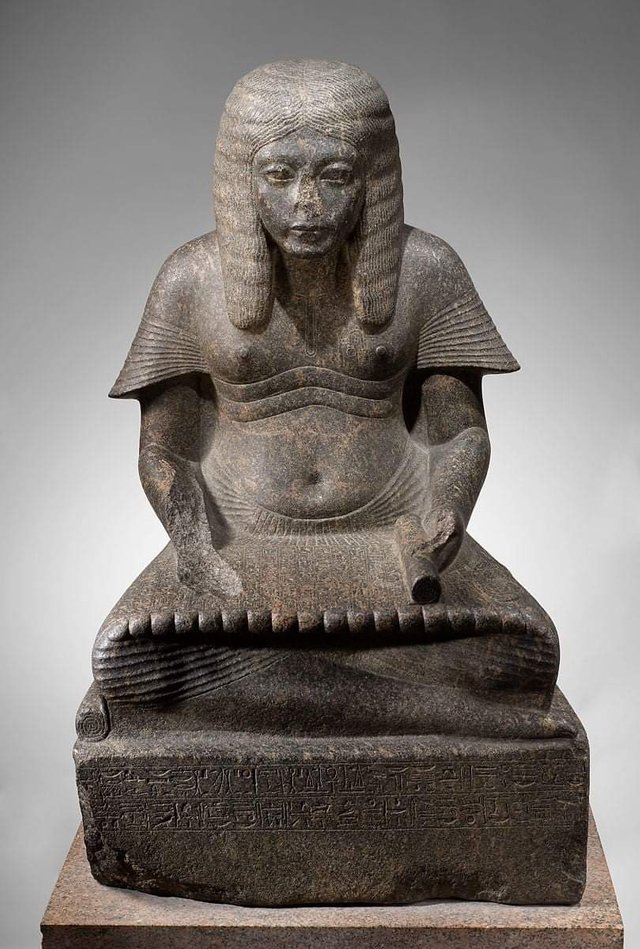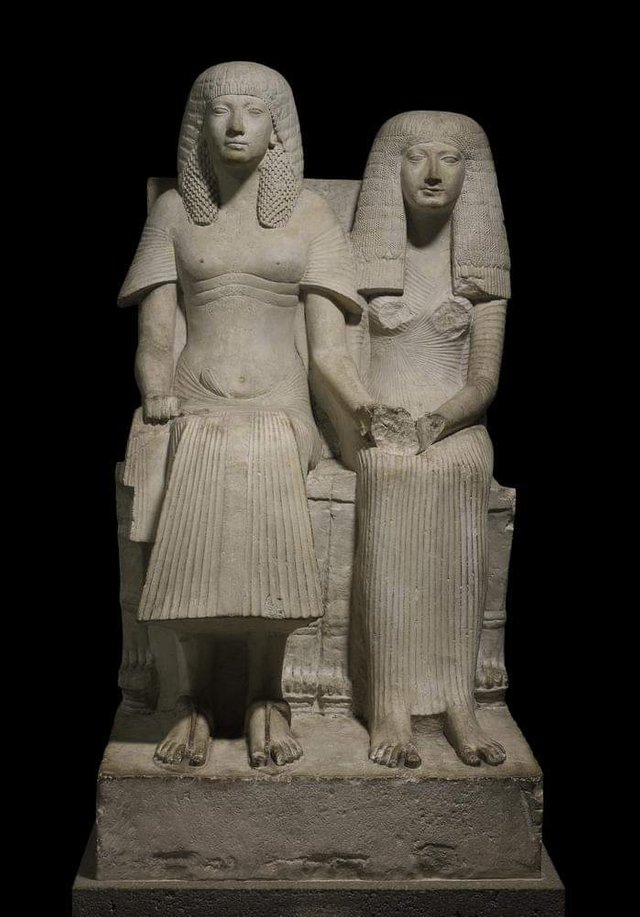Ancient Egyptian civilization
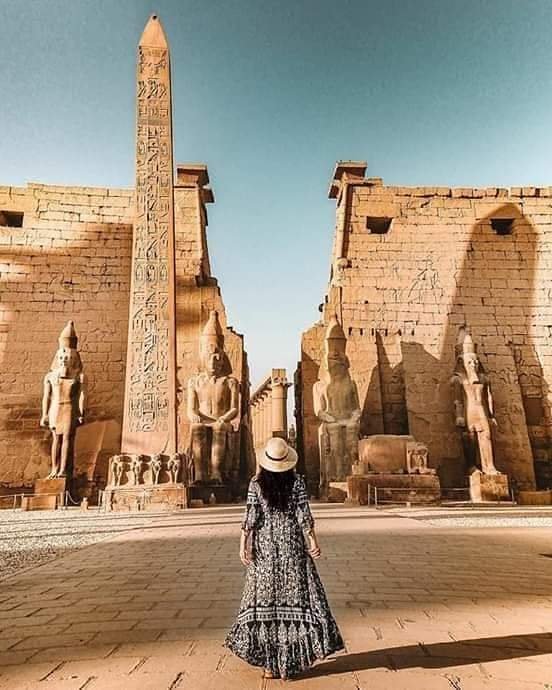
That civilization whose effects tell concerning its news as if we tend to see it engineered an excellent bequest that remained to inform us the story of a nation that dominated the globe for hundreds of years and was a gorgeous song and literary composition singing about the riders on their travels and travels, a civilization of each trace that remained to the current day tells us the history of a amount that was choked with glories All aspects of life, the civilization of the traditional Egyptians wasn't solely a civilization that was made and built, however was a civilization of thought and philosophy that lined all aspects of life. What was found on the walls of the temples weren't ornamental inscriptions, however rather a history written to inform grandparents to the grandchildren however their ancestors were of the simplest of states and therefore the plan of immortality that The management of the mind of the traditional Egyptian is what prompted him to write down all the small print of his life on the walls of his festivals, so that they recorded for North American nation their morals, poems and beliefs to provide us a transparent image of their life all told its details so we are able to tell it nowadays to our kids and tell them we tend to are descendants of the simplest nation legendary to the world.
Pharaoh ‹ ḥr-m-ḥb › 'Horemheb': The last ruler of the New Kingdom, eighteenth Dynasty.
His name is additionally multifariously vocalized as Horemhab or Haremhab. His name which means "Horus is in Jubilation." He dominated for fourteen years and one month between the years 1319 BCE - 1292 BCE. He married twice. the primary time to Egyptian noblelady, ‹ imn-iA › 'Amenia.' amenorrhea appears to possess died throughout the short reign of pharaoh Ay before Horemheb became pharaoh. Horemheb' second wife, ‹ mw.t-nḏm.t › 'Mutnedjmet,' presumably the girl of pharaoh Ay, planned a toddler that died unborn or once birth. Horemheb had no known extant children. If Mutnedjmet is that the girl of Ay, that produces her the potential sister of each Nefertiti and Nakhtmin both of whom could have conjointly been fathered by Ay.
Horemheb may are been within the city of Hnes on the geographic area of the Nile, close to the doorway to the Fayum. His parentage is unknown...he is believed to possess been a commoner.
The earliest known a part of Horemheb' career begins with him being "the royal representative for [Egypt'] foreign affairs." He crystal rectifier a deputation on behalf of ruler Tutankhamun to the land of Miam (Aniba) in Kush. A visit reciprocated by the Kushite patrician of Miam (Aniba) who, in return, visited Tutankhamun' court. This visit is recorded within the grave of Tutankhamun' viceroy to Kush, Huy.
Horemheb' fast rise to importance below Tutankhamun culminated in him turning into functionary to the pharaoh and commander-in-chief of his army. at intervals his personal Memphite tomb at Saqqarah that Horemheb had engineered for himself whereas he was still a high-level official under Tutankhamun, his titles are displayed. They read, "Hereditary Prince, Fan-bearer on the proper aspect of the King, and Chief Commander of the Army"; the "attendant of the King in his footsteps within the foreign countries of the south and therefore the north"; the "King' courier ahead of his army to the foreign countries to the south and the north"; and the "Sole Companion, he who is by the feet of his lord on the battleground thereon day of killing Asiatics."
At the age of 19, ruler Tutankhamun died. Before his death Tutankhamun had already formally selected Horemheb because the ‹ rpat › or ‹ iry-pat › "hereditary or crown prince" and ‹ idnw › "deputy of the king" within the entire land. The title ‹ iry-pat › (Hereditary Prince) was used terribly ofttimes in Horemheb' Saqqarah tomb, however not combined with the other words. This title once used alone sometimes signifies ancient descent and lawful inheritance that is a dead ringer for the designation for a "Crown Prince." this implies that Horemheb was the brazenly recognised heir to Tutankhamun' throne, and not Ay, Tutankhamun' immediate successor.
The aged vizier, Ay, sidelined Horemheb' claim and taken the throne for himself. This seemingly happened as a result of Horemheb was in the geographical area with Tutankhamun' army at the time of Tutankhamun' death. any complicating things for Horemheb, Ankhesenamun, Tutankhamun' widow, refused to marry him. Ankhesenamun did marry Ay though.
Ay, having pushed Horemheb' claims aside, proceeded to nominate Nakhtmin (possibly the brother to Nefertiti and Mutnedjmet), who was presumably Ay' son or adopted son, to succeed him instead of Horemheb.
once ruler Ay died once four years on the throne, Horemheb managed to claim his rightful claim granted to him via Tutankhamun at the side of declarative his duteous service as commander-in-chief of the military below each Tutankhamun and Ay and assume power and therefore the throne.
Upon ascending to the throne Horemheb wasted no time erasing ANy claim Nakhtmin had to the throne. Horemheb went on an intensive campaign of Damnatio Memoriae against Nakhtmin, Ay, and Akhenaten. thus intense was Horemheb’s campaign that he destroyed a lot of of the proof of Ay’s life as well as Ay’s royal mummy. He destroyed a good deal of the evidence of Akhenaten’s reign. Horemheb demolished Akhetaten (Akhenaten’s royal town aka Amarna) and drop the ruins of the monuments and stelae into pits as fill for his own monuments. thus thorough was Horemheb' work that Akhenaten was wiped from Egyptian history. His name was ne'er mentioned once more in any reasonably records, and wherever his reign required to be cited, he was remarked solely as “the heretic of Akhetaten.”
Tutankhamun gave the impression to have for the most part avoided Horemheb’s wrath.
Also, outside of his intensive damnatio memoriae campaign against the Amarna pharaoh’s, upon ascending to the throne…Horemheb conjointly initiated rather comprehensive governmental and spiritual reforms. He utterly demolished the system Akhenaten setup and replaced it with a system nearer to the recent one before Akhenaten’s reforms, however with some refinements. Horemheb conjointly reformed Egypt’s military, reconditioned the Amun profession to a point of power whereas keeping them from having complete control, organized the Deir el Medina personnel in his seventh year, and initiated an oversized variety of building campaigns that includes, however don't seem to be restricted to constructing the Second, Ninth, and Tenth Pylons of the nice Hypostyle Hall, within the Temple at Karnak, victimisation recycled talatat blocks from Akhenaten' own monuments here, as artifact for the primary 2 Pylons. In his eighth year, he also restored ruler Djehuti-mose IV’s grave once it had been disturbed by grave robbers.
Before his death and since Horemheb had no known living children, he appointed his vizier, Paramesse, to succeed him upon his death, each to reward Paramesse' loyalty and since the latter had both a son and grandchild to secure Egypt' royal succession. Paramesse became ruler Rameses I, founding father of the New Kingdom - nineteenth Dynasty, upon assumptive power.
Horemheb had 2 graves, his personal tomb at Saqqarah and his royal tomb (KV 57) within the natural depression of the Kings. His tomb in the natural depression of the Kings was unfinished. once Horemheb ascended to the throne, he abandoned his personal grave at Saqqarah and started building his tomb within the natural depression of the Kings. in an exceedingly initial for a royal tomb, in the part(s) of his tomb that were finished, it absolutely was adorned with scenes from the Book of Gates.
Horemheb' tomb was excavated in the early twentieth century cerium by Theodore M. Davis. it absolutely was discovered in a poor state because of robbers and earth movements over the centuries. The lid of the casket had been come into being and smashed by robbers.
Horemheb’s mummy has ne'er been found or identified.
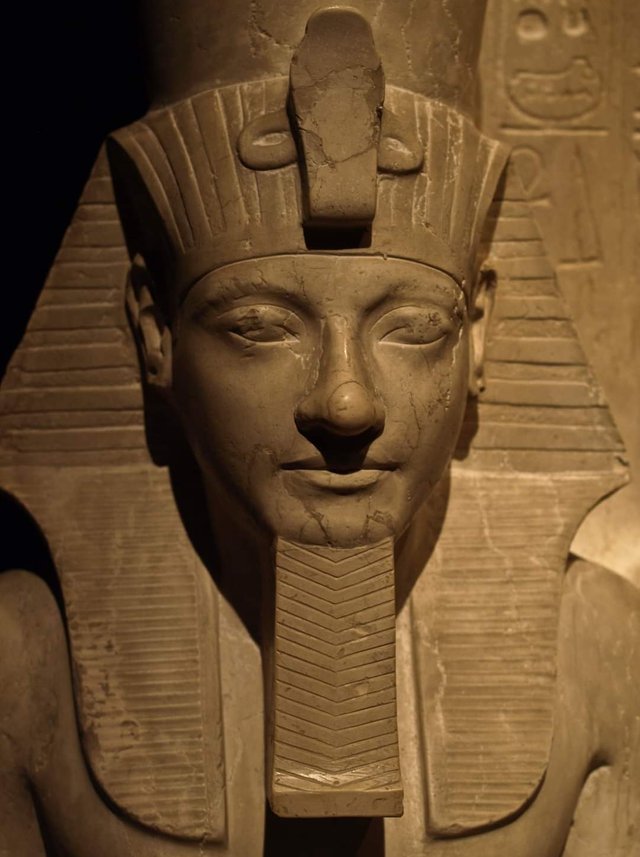
Detail of astatue of Horemheb, at the kunsthistorisches Museum,
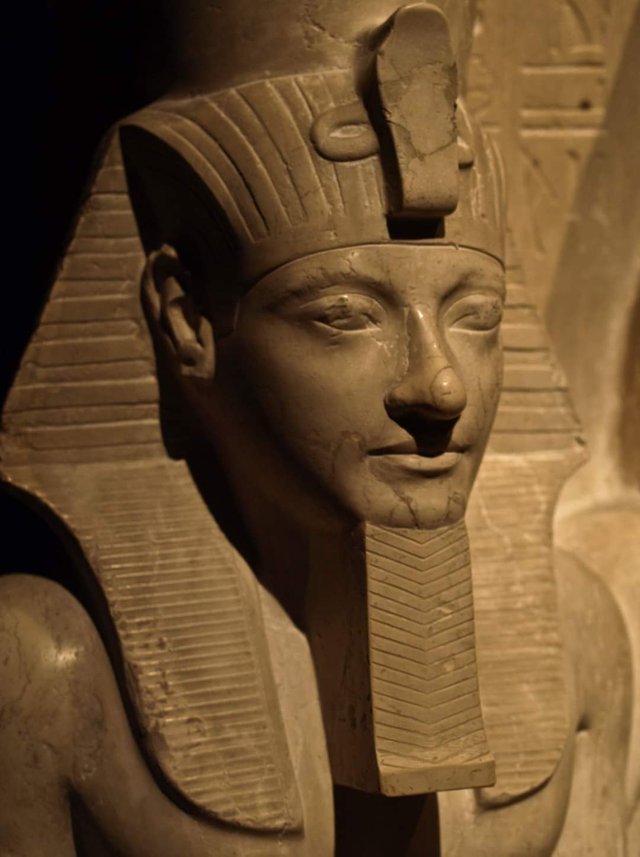
The same statue from different angle
Closeup Of awell preserved statue of Pharaoh
Horemheb with the god amun from the egyption museum of Turin
Horemheb as ascribe under Tutankhamun
Horemheb(before becoming Pharaoh ) with his first wife, Amenia
